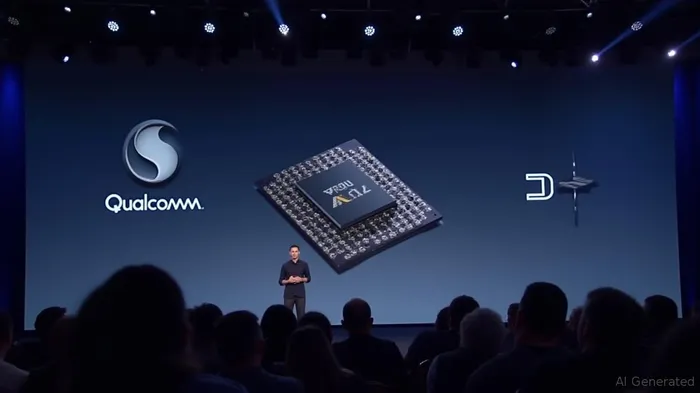Qualcomm Unveils Snapdragon AR1+ Gen 1 Processor for Autonomous Smart Glasses
Qualcomm, a leading technology company, has intensified its focus on the smart glasses market by unveiling the Snapdragon AR1+ Gen 1 processor. This new processor is designed to enable smart glasses to run AI functions independently, without the need for an internet connection or reliance on a smartphone. The core design philosophy behind this product is to allow smart glasses to operate autonomously, leveraging the power of Qualcomm's chipset to deliver advanced AI capabilities.
Ziad Asghar, Senior Vice President at QualcommQCOM--, highlighted the significance of this development. He demonstrated how the integrated Qualcomm chip within the smart glasses can facilitate interactions with AI-driven applications, showcasing the potential for enhanced user experiences in various scenarios. This innovation is part of Qualcomm's broader strategy to diversify its revenue streams beyond traditional mobile phone markets, positioning smart glasses as a key growth area.
The Snapdragon AR1+ Gen 1 processor represents a significant advancement in the field of augmented reality (AR) and AI. By enabling smart glasses to function independently, Qualcomm is paving the way for more immersive and seamless user experiences. This development is expected to drive further innovation in the AR and AI sectors, as companies explore new applications and use cases for smart glasses.
Qualcomm's investment in low-power components for smart glasses underscores its commitment to advancing this technology. The company's focus on developing efficient and powerful processors for AR devices is likely to attract more developers and manufacturers to the smart glasses market, fostering a competitive and innovative ecosystem. As the demand for AR and AI technologies continues to grow, Qualcomm's latest processor is poised to play a crucial role in shaping the future of smart glasses and related applications.
Qualcomm's new processor is already powering several high-profile AR and VR devices, including Meta Platforms' Ray-Ban smart glasses and Quest headsets. The company aims to supply components for a wide range of head-mounted devices, from VR glasses to smart glasses that resemble ordinary eyewear. In addition to its collaboration with Meta, Qualcomm's chips are used in products from Lenovo, Sony, Microsoft, and HTC.
Qualcomm's efforts in the smart glasses market come as other tech giants, such as Apple, also explore this space. Apple has released the Vision Pro headset, which runs on an independent visionOS operating system, and provides ARKit tools for developing AR applications for iPhone and other devices. However, Vision Pro has yet to achieve commercial success due to its large size and limited functionality.
Qualcomm, which has a history of both collaborating with and competing against Apple, is positioning itself to drive the development of the smart glasses market before Apple can significantly impact it. By focusing on low-power, high-performance components, Qualcomm aims to make smart glasses more accessible and functional, potentially leading to broader adoption and innovation in the sector.

Global insights driving the market strategies of tomorrow.
Latest Articles
Stay ahead of the market.
Get curated U.S. market news, insights and key dates delivered to your inbox.

Comments
No comments yet